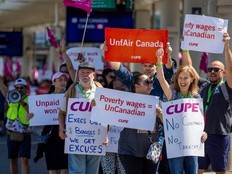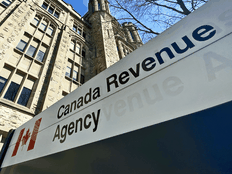GUNTER: What's next for Poilievre, and Alberta, after the Liberals' re-election?

Article content
First, a few words about Pierre Poilievre.
There was a statue of Sir John A Macdonald outside Victoria City Hall until it was taken down recently for “woke” reasons. The sculpture was there because, at one point, Macdonald lost his seat in Kingston and ended up having to represent the B.C. capital instead.
Recommended Videos
So, while it’s a blow to Poilievre to have lost in his own Ottawa-area riding on Monday night, it’s not a political death sentence.
Poilievre won 25 more seats for his party than the Conservatives had won in 2021. And he increased their share of the popular vote by almost eight percentage points, in an election in which the NDP cratered and the Bloc stumbled. That makes Poilievre’s achievements all the more remarkable since there was no vote splitting on the left that would have helped his Conservatives.
Some backbencher in a safe Conservative riding will give up his or her seat. Poilievre will run and win a by-election and return to the Commons that way.
But he had better hurry. This Parliament is unlikely to last more than 18 to 24 months.
The Liberals (168 seats) and the NDP (seven seats), together, have just enough seats (175) to give a Liberal-NDP coalition a virtual majority (172 seats are needed).
The NDP won’t want to cozy up to the Libs again, as they did for the past three years. But they’re desperate. They failed to win recognized-party status on Monday night because they failed to reach the 12-seat threshold. So they need the Liberals to keep them halfway relevant.
And the Liberals need the NDP, otherwise, they will constantly be kissing up to the Bloc to keep themselves in office.
Yet, the NDP will be a more reluctant partner than before. They must see that their submissiveness to the Liberals is one of the big reasons their support tanked from 17.8 per cent in 2021 to a minuscule 6.3 per cent on Monday.
Unlike Poilievre, NDP Leader Jagmeet Singh had to go.
Still, whatever devilish deal the Liberals and NDP concoct, it will be more temporary than the supply and confidence scheme to two parties lived under from 2022 to 2025. As soon as the Liberals sense a majority is within their grasp, they will introduce a bill they know the NDP could never support. They’ll blame the ensuing election on the NDP’s unwillingness to work together for the betterment of the country and Canadians will be back to the polls before the end of 2027.
And what about Alberta?
Before the election, Premier Danielle Smith said a Liberal win could provoke a national unity crisis. After the election, she said, “A large majority of Albertans are deeply frustrated that the same government that overtly attacked our provincial economy … for the past 10 years has been returned to government.”
Is there a serious threat of Alberta separation?
Yes, but not instantly.
Before the election, a lot of commentators scoffed at the threat. They pointed to an Angus Reid poll that showed “just” 30 per cent of Albertans would consider leaving Confederation.
But 30% is the same level of support as separation enjoys in Quebec, and Quebec has had a separatist movement for nearly 60 years. It has had several credible leaders and is on the verge of forming government again.
Alberta has the same level of support for independence without any of the formal trappings. Give Alberta separatism a well-known leader, an organized and funded party and a serious issue, and who knows how high support might go?
One of the scenarios the Alberta government is most worried about is Prime Minister Carney putting an excise tax on oil exports in the name of fighting Donald Trump’s tariffs, then using the proceeds to help mitigate the effects of tariffs in Liberal-voting Ontario and Quebec.
If that were to happen, all bets regarding separation would be off.













Postmedia is committed to maintaining a lively but civil forum for discussion. Please keep comments relevant and respectful. Comments may take up to an hour to appear on the site. You will receive an email if there is a reply to your comment, an update to a thread you follow or if a user you follow comments. Visit our Community Guidelines for more information.